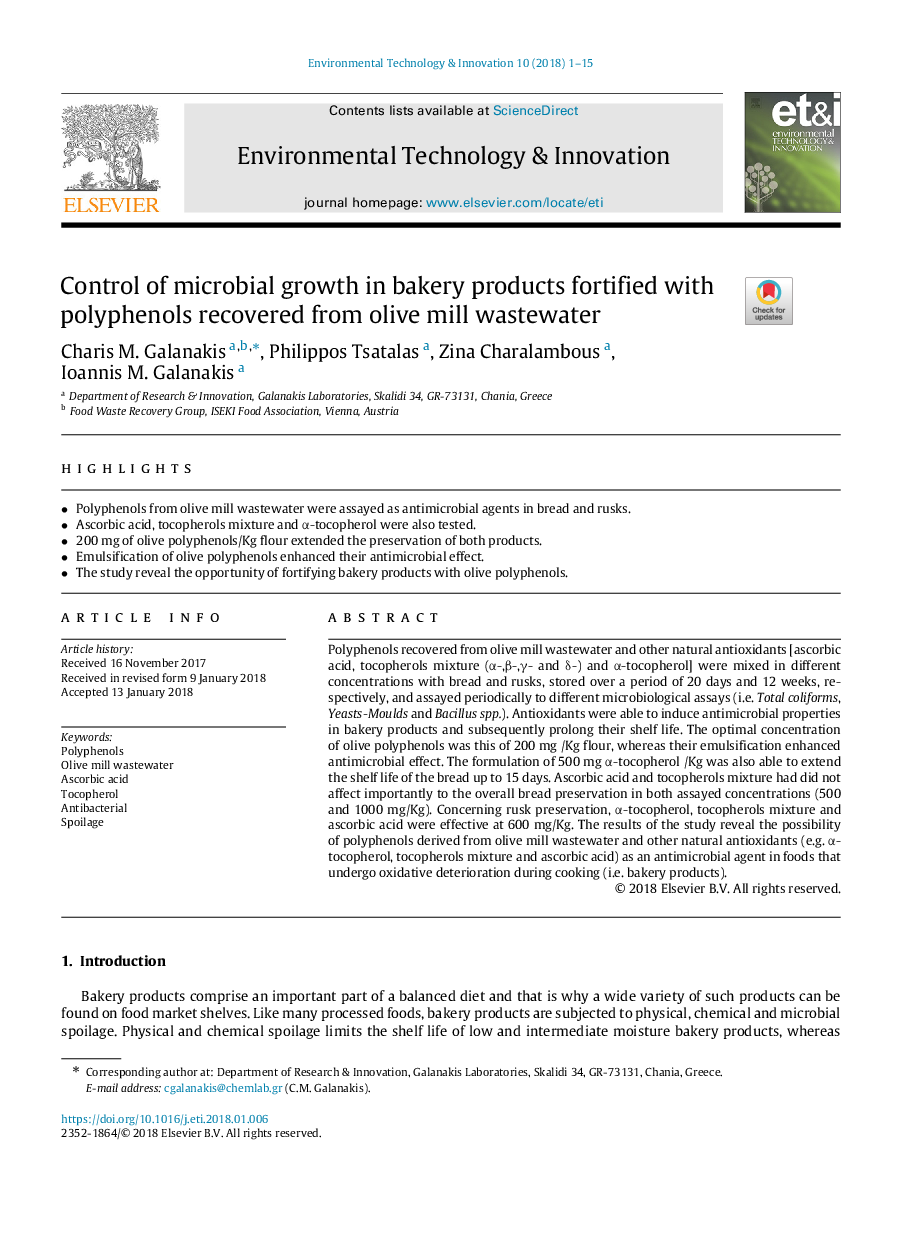| Article ID | Journal | Published Year | Pages | File Type |
|---|---|---|---|---|
| 8857948 | Environmental Technology & Innovation | 2018 | 15 Pages |
Abstract
Polyphenols recovered from olive mill wastewater and other natural antioxidants [ascorbic acid, tocopherols mixture (α-,β-,γ- and δ-) and α-tocopherol] were mixed in different concentrations with bread and rusks, stored over a period of 20 days and 12 weeks, respectively, and assayed periodically to different microbiological assays (i.e. Total coliforms, Yeasts-Moulds and Bacillus spp.). Antioxidants were able to induce antimicrobial properties in bakery products and subsequently prolong their shelf life. The optimal concentration of olive polyphenols was this of 200 mg /Kg flour, whereas their emulsification enhanced antimicrobial effect. The formulation of 500 mg α-tocopherol /Kg was also able to extend the shelf life of the bread up to 15 days. Ascorbic acid and tocopherols mixture had did not affect importantly to the overall bread preservation in both assayed concentrations (500 and 1000 mg/Kg). Concerning rusk preservation, α-tocopherol, tocopherols mixture and ascorbic acid were effective at 600 mg/Kg. The results of the study reveal the possibility of polyphenols derived from olive mill wastewater and other natural antioxidants (e.g. α-tocopherol, tocopherols mixture and ascorbic acid) as an antimicrobial agent in foods that undergo oxidative deterioration during cooking (i.e. bakery products).
Related Topics
Life Sciences
Environmental Science
Environmental Chemistry
Authors
Charis M. Galanakis, Philippos Tsatalas, Zina Charalambous, Ioannis M. Galanakis,
